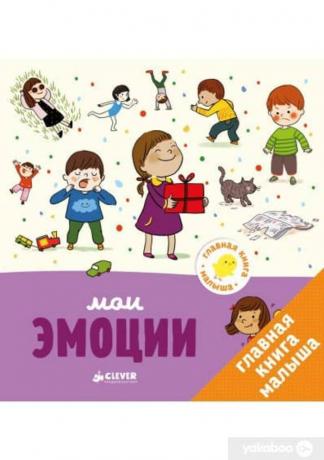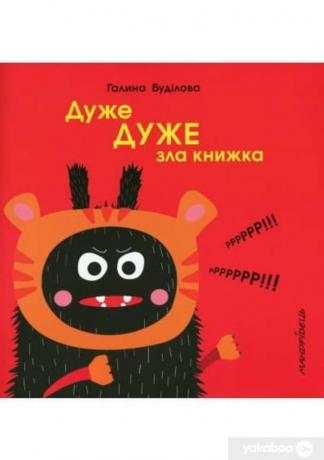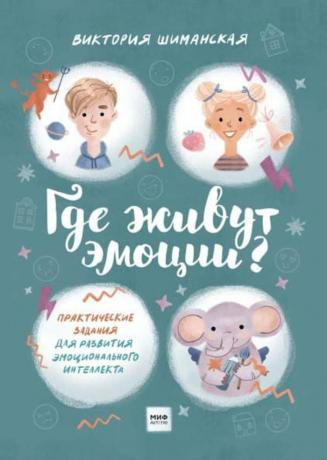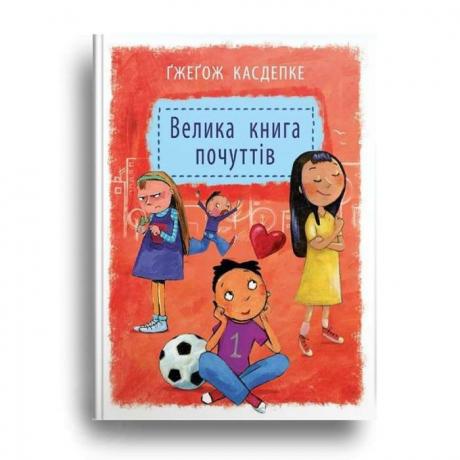Why do you want to hit someone? Why are there tears in my eyes? Then they understand that what is happening to them is normal. Therefore, it is important to develop the emotional intelligence of the child. Books will help with this.
Today, fortunately, the situation is changing. Such a concept as emotional intelligence has firmly entered our life. A person with whom he is developed understands the feelings, emotions of other people. But most importantly, he clearly understands what is happening in his own soul. From what there are cats scratching or from what she sings.
If you want your child to be happy, you must definitely develop him. emotional intelligence. The first assistant in this matter is books. The site kolobok.ua has selected for you a collection of books that simply and interestingly tell children about emotions.
"My emotions. The main book for the baby ", Agnes Besson

This book is the starting point for your child's acquaintance with emotional intelligence.
This book may be the first in your children's emotional intelligence library. It is perfect for the smallest readers - up to 2 years old. It has a very convenient format - it will be convenient for the baby to hold it in the handles. All information is maximally visualized thanks to colorful drawings.
At the same time, the author is not looking for easy ways. She talks about such emotions as disgust, pleasure. So your child, getting acquainted with this book, will not only learn about new emotions, but also expand his vocabulary.
A series of books about the emotions of Galina Budilova

Well, very "Very very evil book"
Galina Budilova is a children's writer, mother of two boys. She became the first in Ukraine to write children's book about coronavirus. She also has a series of books about emotions: "A very, very scary book", "A very, very angry book", "A very, very jealous book." As the name implies, each of them is dedicated to a specific emotion.
In a simple and funny way, the author gives life hacks on how to live strong negative emotions without harming yourself and those around you. For example, you might ask your child to make angry music by tapping with two spoons. Books from this series will be interesting and understandable for children of 3 years of age.
"Where emotions live", Victoria Shimanskaya

Understanding where emotions live is important for developing emotional intelligence
The main character of this book is the very delicate elephant Elon. It has two features. The first is the wings. Second, he sees and makes friends with emotions. Thanks to his such gift, Elon will be able to become a guide for your child into the world of emotions. And not only by teaching and telling, but by involving them in the game. There are many tasks in the book, completing which the child will receive a sticker. It must be glued at the bottom of the page with the completed assignment.
It is quite possible to go on emotional adventures with the elephant Elon from the age of 4.
"The Big Book of Feelings" ("The Great Book of Feelings") Grzegorz Kasdepke

Fun and interesting - about a variety of emotions
The events of this book are set in a Polish kindergarten, in the older group of 6-year-olds. Some passions are constantly boiling in their lives. Jealousy, resentment, envy, love - all these strong emotions are experienced by the little heroes of this book. At the end of each story, the author gives a little homework for the parents. The task is to discuss the read chapter: what it is about, why the children behaved that way. Also in this "homework" questions are given that must be answered by both the child and the parent. For example, what are you most ashamed of? Did you envy anyone, etc.
You can safely acquaint children with the "Big Book of Feelings" from the age of 5.
"The ABC of Emotions", Natalia Kedrova
The author of this book, Natalya Kedrova, is a child psychologist, gestalt therapist. Therefore, she managed to write the most useful book that not only describes how emotions are manifested. But he also tells how they feel inside. Why do they appear? What do they want? How to make friends with them and let them go? You and your child will definitely find answers to these questions. It is a great choice for primary school children.



